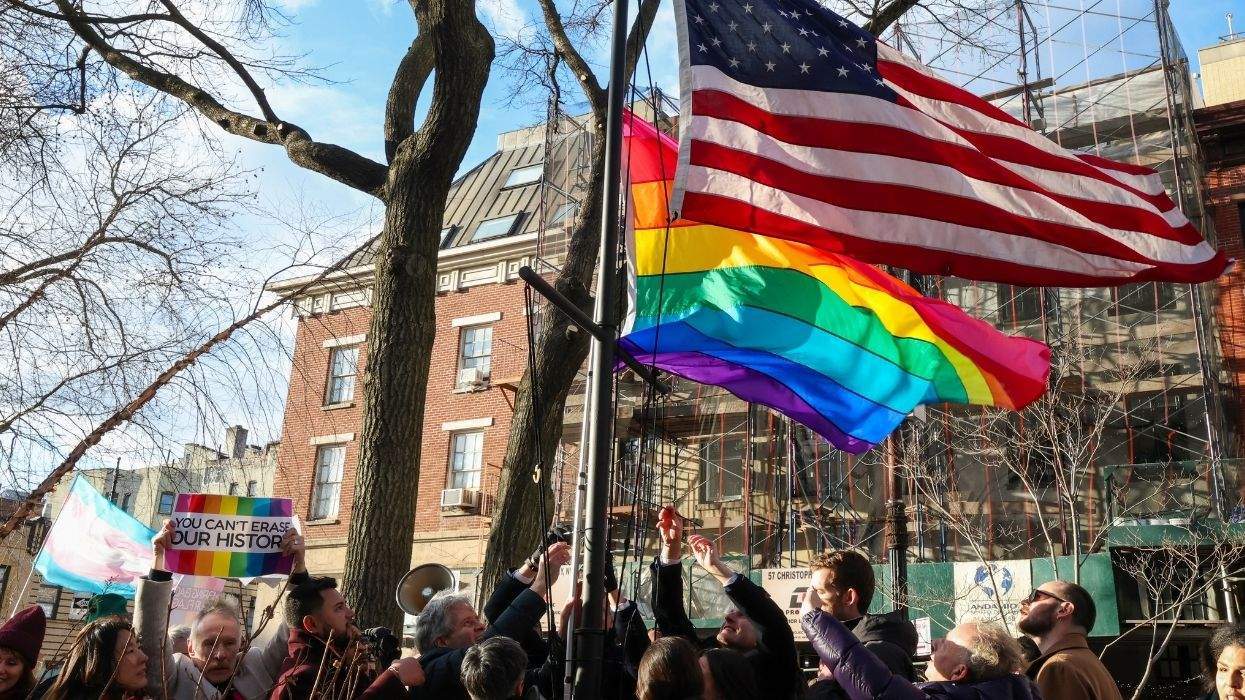Colorado authorities ruled on Monday that a Denver gay bar illegally discriminated against a man who was denied entrance last year becuse he was dressed in drag.
Last August, 27-year-old Vito Marzano was prevented from entering the Denver Wrangler, a venue widely known as a leather and bear bar situated in the city's popular "gayborhood," after attending a fundraiser earlier in the night in drag. According to the bar's manager, Marzano was denied entry because they were unable to use photo identification to verify that he was the person he said he was or that he is of legal drinking age.
The Department of Regulatory Agencies ruled in favor of Marzano, ordering the bar to enter mediation with him. "At face value, the [bar's] policies appear legitimate and nondiscriminatory," Steven Chavez, director of the Civil Rights Division, wrote in the ruling, obtained by The Denver Post. "However, the evidence indicates that the [bar] uses its policies to select patrons whose appearance is masculine, whether or not they are male or female, for entry into its club."
Colorado's Civil Rights law protects citizens "[i]n the areas of employment, housing, and public accommodations, discrimination is unfair treatment of an individual or group because of their protected class (characteristic). Retaliation is also a prohibited discriminatory act, where adverse action is taken against an individual because of his or her participation in a protected activity (i.e. speaking in opposition to a discriminatory act, filing a discrimination complaint, or participation in a discrimination investigation or lawsuit)."
The state's list of protected classes include disability, race, creed, color, religion, sex, sexual orientation, marital status, familial status, national origin, and ancestry. While gender identity and expression are not considered protected classes, transgender Coloradans are covered under the broad definition of "sexual orientation," as per a 2008 revision to the state's civil rights law, reading, "'Sexual orientation' means a person's orientation toward heterosexuality, homosexuality, bisexuality, or transgender status or another person's perception thereof."
While Marzano does not identify as transgender, he said he's acutely aware of how the treatment he faced could be applied to transgender individuals, especially those unable to update their legal identification to reflect their gender identity and expression.
"I believe this policy is rooted in misogyny and transphobia equally," Marzano told The Advocate last year. "Nevertheless, [Wrangler manager] Phil [Newland] did make it clear that if someone transitioned from female to male, they would be able to partake in Beer Bust. That being said, there is still the issue of how [the Wrangler] allows in patrons. Just because someone is transitioning and would be allowed to partake doesn't mean they would be able to get through the first hurdle of getting into the bar."
Earlier this year, a Portland, Ore., bar shut its doors after a group of transgender women and gender nonconforming individuals were told by owners that they were no longer welcome, citing concerns that their presence was driving customers away.















Charlie Kirk DID say stoning gay people was the 'perfect law' — and these other heinous quotes
These are some of his worst comments about LGBTQ+ people made by Charlie Kirk.